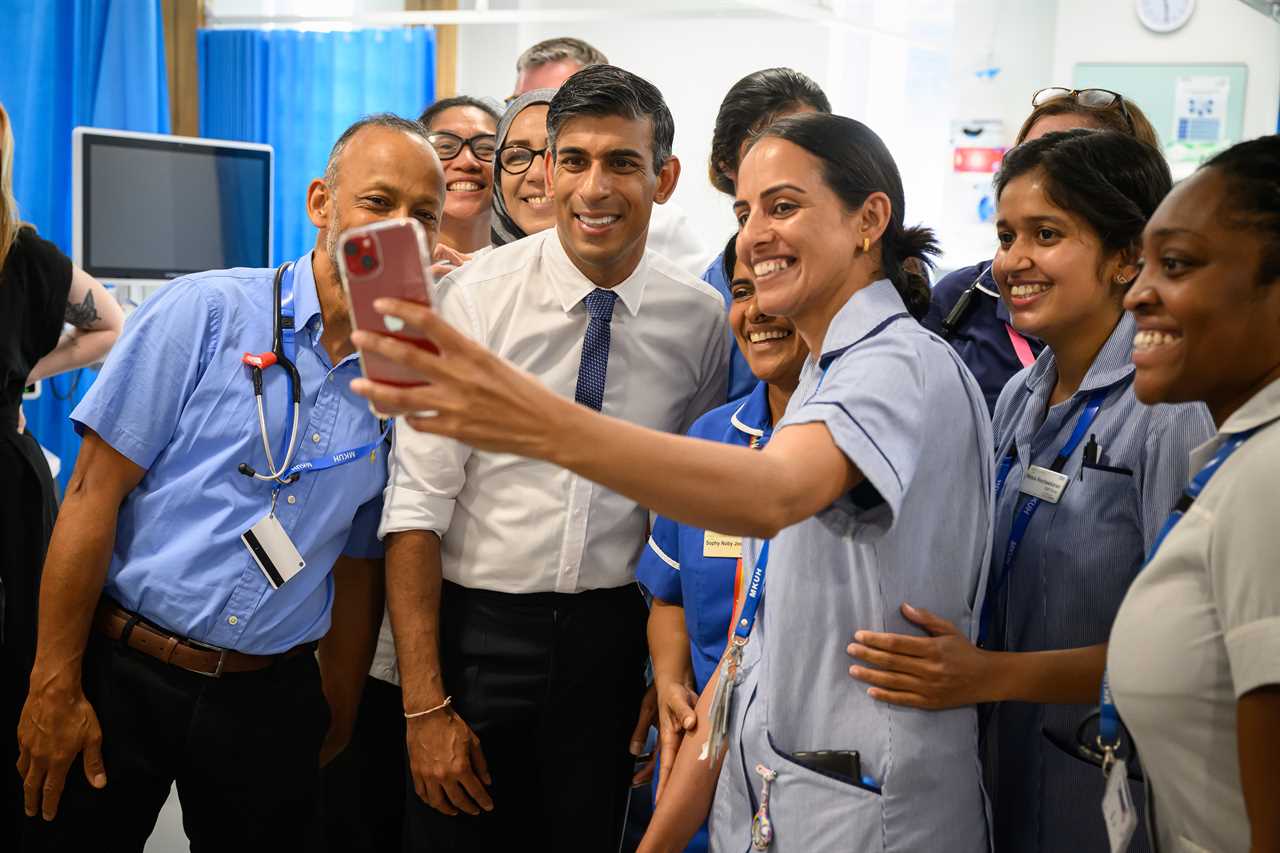RISHI Sunak insists there is “light at the end of the tunnel” as wage growth hits a record high — with inflation forecast to cool.
The Prime Minister has vowed he will “stick to the plan”, despite pay growth putting pressure on the Bank of England to raise interest rates.

Rishi Sunak has welcomed the latest figures which will see inflation fall
Salary rises reached a record 7.8 per cent in the three months to June and by 8.2 per cent when bonuses are taken into account.
Experts expect a fall in inflation today to around 6.7 per cent for July — which is down from 7.9 per cent for the month before.
Hard-working Brits will soon see the benefits of salaries rising faster than prices, the PM says.
Mr Sunak, who has returned from his Stateside holiday, made the comments yesterday on a visit to Milton Keynes Hospital, as he pledges to halve inflation by the end of the year.
He said: “We are making progress. The last set of numbers we had showed that inflation was falling faster than people expected.
“We’ve got work to do. We’ll get more numbers tomorrow, but it’s important that we stick to the plan.
“The plan is working. I think there is light at the end of the tunnel. If we get through this, people will really start to see the benefit in their bank accounts, in their pockets, as inflation starts to fall.”
Bank chiefs have already raised interest rates 14 times in a row to 5.25 per cent, with another hike expected again next month.
Meanwhile, internal government warnings suggest there could be a rebound over the summer, with higher wages and a rise in the cost of clothing.
The Treasury could be faced with paying billions more in pension payments than expected due to the “triple lock” pledge — which guarantees a rise by the highest out of average wage growth, inflation or 2.5 per cent.
The annual pension rate rise is based on the inflation figure for September, which is published the following month.
Meanwhile, the unemployment rate increased to 4.2 per cent — up 0.3 per cent in the three months to June.
But provisional Office for National Statistics figures reveal the number of payrolled employees was up by 97,000 to 30.2million for July.
Darren Morgan, economist from the ONS, said: “Earnings continue to grow in cash terms, with basic pay growing at its fastest since current records began.
“Coupled with lower inflation, this means the position on people’s real pay is recovering and now looks a bit better than a few months back.”






